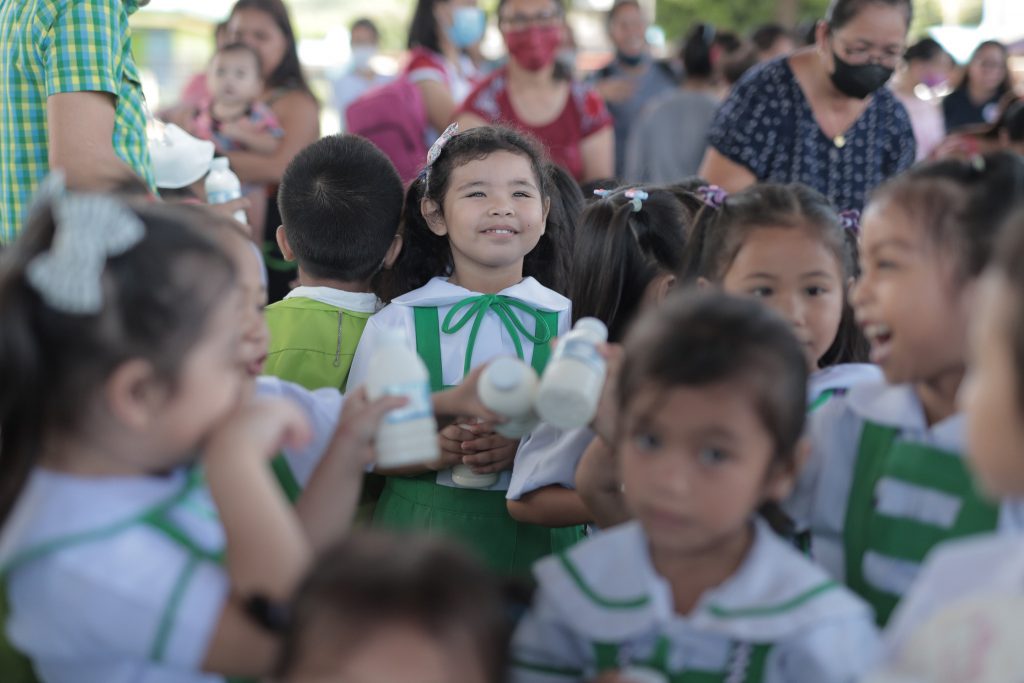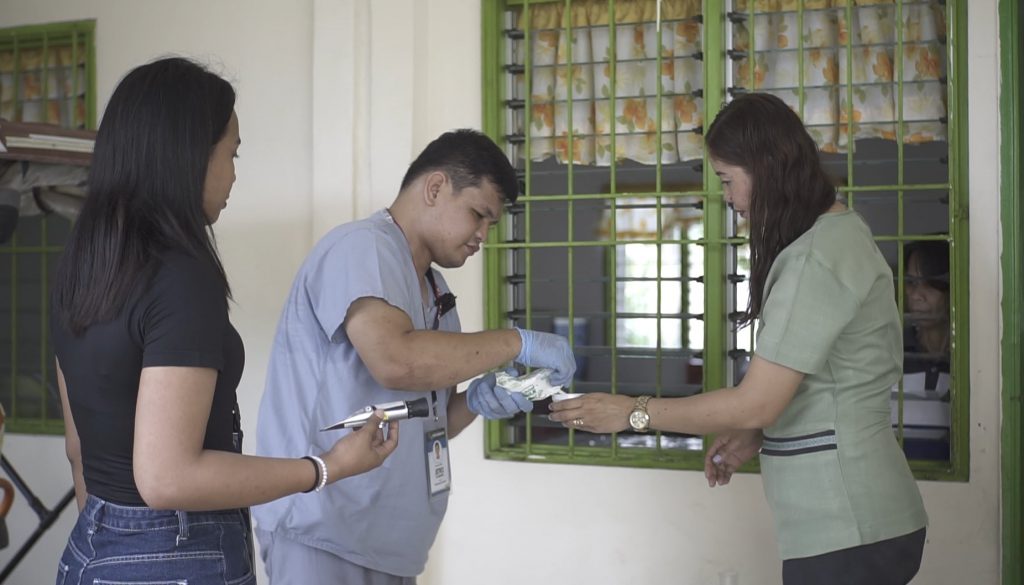Thousands upon thousands of transformed lives—this being the life’s mission of the DA-Philippine Carabao Center (DA-PCC) and evidently its banner achievement as it sustains support to dairy cooperatives participating in the National Milk Feeding Program.
“It’s not about the DA-PCC but the effects that we aim to create alongside our accountability partners. Our goal is to help curb the nutritional deficiencies of children and at the same time create livelihood opportunities for farmers through this program, led by the Department of Education (DepEd) and the Department of Social Welfare and Development (DSWD),” DA-PCC Executive Director Dr. Liza Battad said.
The DA-PCC “flexes” significant achievements of the said program, positively impacting millions of undernourished children nationwide and concurrently boosting the income of farmers’ cooperatives and associations (FCAs), collectively generating a total revenue of PHP2.7 billion.
Said initiative, in line with Republic Act No. 11037 or the “Masustansyang Pagkain Para Sa Batang Pilipino Act of 2018,” showcases the successful collaboration of the DA-PCC, partner-FCAs, the DepEd, the DSWD, and the provincial and local government units.
The program plays a significant role in creating institutional markets that significantly enhance the livelihoods and incomes of FCAs. This initiative has not only addressed the immediate nutritional needs of children but has also paved the way for a more robust dairy industry.
Since the program’s inception in 2019, the number of participating FCAs has grown from 30 to 45 under the DepEd School-Based Feeding Program (SBFP). These FCAs supplied over 112 million milk packs to 1,981,396 beneficiaries in SY 2019-2020; 3,114,948 in SY 2020-2021; 3,503,732 in SY 2021-2022; 3,446,217 in 2022-2023; and 2,054,873 in SY 2023-2024, generating a gross income of PHP2.2 billion. Similarly, under the DSWD Supplementary Feeding Program, the number of active FCAs increased from 8 to 28, delivering over 25 million milk packs to 177,180 beneficiaries during the 10th cycle; 240,502 during the 11th cycle; 283,254 during the 12th cycle; and 157,968 during the 13th cycle, with a gross income of PHP500 million.
The milk feeding program has also created more than 130,000 jobs, including roles in family enterprises, multiplier farms, milk collection, and other segments in the dairy value chain.
Rolly Mateo Sr., chairperson of Bantog Samahang Nayon Multipurpose Cooperative (BSNMPC), Janice Domingo of Nueva Ecija Federation of Dairy Carabao Cooperatives (NEFEDCCO), and Analyn Tade, chairperson of the Rosario Dairy Farmers Cooperative corroborated these reports and shared their respective testimonies and success stories regarding the program.
“Being one of the cooperatives chosen to produce milk products for the program, we were able to hire more than 100 people to work at our processing plant. We somehow helped minimize the number of unemployment caused by the pandemic. Also, part of our earnings gained from the program was used to fund community pantries during the pandemic and medical mission. We are grateful that we were given the opportunity to be part of the Milk Feeding Program’s materialization,” Matteo attested.
Domingo proudly shared that the Milk Feeding Program had helped their federation’s assets increase from PHP8 million in 2018 to PHP28 million in 2021. It even provided jobs to 200 people in their community and with the income they earned, they were able to renovate their office to a three-story building. She also admitted that the program helped them bounce back as they were ensnared in financial distress before they ventured into the feeding program.
Tade noted that the milk feeding program significantly benefitted their cooperative, as reflected in their net surplus of PHP3,651,608 in 2021 and PHP6,218,132 in 2022. The income enabled the co-op to purchase land, part of which was used to build the Elyu Dairy Box—a one-stop-shop for carabao-based products.
To further extend the program’s impact, especially in remote areas where delivering fresh milk is challenging, the DA-PCC and FCAs have turned to retort facilities. These facilities, located in Isabela, Science City of Muñoz, Batangas, and Sorsogon, ensure the safety and quality of milk but also allow for bulk transportation to regions where frequent deliveries are impractical.
These success stories are just a few examples of the positive outcomes of the Milk Feeding Program. They serve as tangible evidence of the program’s intended benefits, which are worth “flexing” and sustaining.









